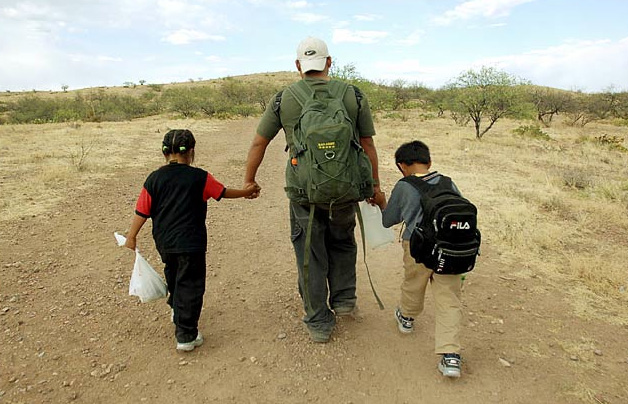It’s sad to see Republicans fall all over themselves to support the DREAM Act concept of forgiving illegal alien kiddies who were brought as blameless toddlers to America, or so the narrative goes. The policy may seem kind-hearted and fair to innocent moppets, but in fact DREAMerism changes the rules in a basic way for the worse. A fundamental misinterpretation of the 14th Amendment has given us a century of birth citizenship, and moving the goalposts a further16 years or 35 years from the moment of birth is the wrong direction to go. Genuine “reform” worthy of the term should end the disaster of birth citizenship, not expand the principle.
Of course, if kids are the keys to the kingdom, then they will more frequently be toted across the dangerous southern border, where there has been a “big surge” in crossing deaths — 477 in 2012.
![]()
Here’s Congressman Trey Gowdy pledging his allegiance to DREAMer forgiveness because of his interpretation of the law, he argued during the Judiciary Committee hearing July 23:
Radio host Mark Levin didn’t appreciate Gowdy’s statement, calling him “Mr. Weakling when it comes to the border.”
In his statement for the hearing, Judiciary Chairman Bob Goodlatte professed similar warm and fuzzy thoughts about young illegal aliens “who were brought here as young children by their parents through no fault of their own.”
La Raza couldn’t have said it better!
Californians have been battered by a series of unpopular DREAMer laws passed by the Democrat government, with the effect that 55 percent of voters disapproved of the state version in a 2011 USC/LA Times poll, despite strong press support.
In fact, DREAMerism is birth citizenship on steroids, and Americans reject that bad idea — a 2011 Rasmussen poll found 61 percent of voters rejected anchor baby citizenship.
Another argument against DREAM amnesty is how it would adversely affect un-diverse young Americans: illegal alien kids already benefit from affirmative action in college admissions and there is no reason to think that unfairness would change.













